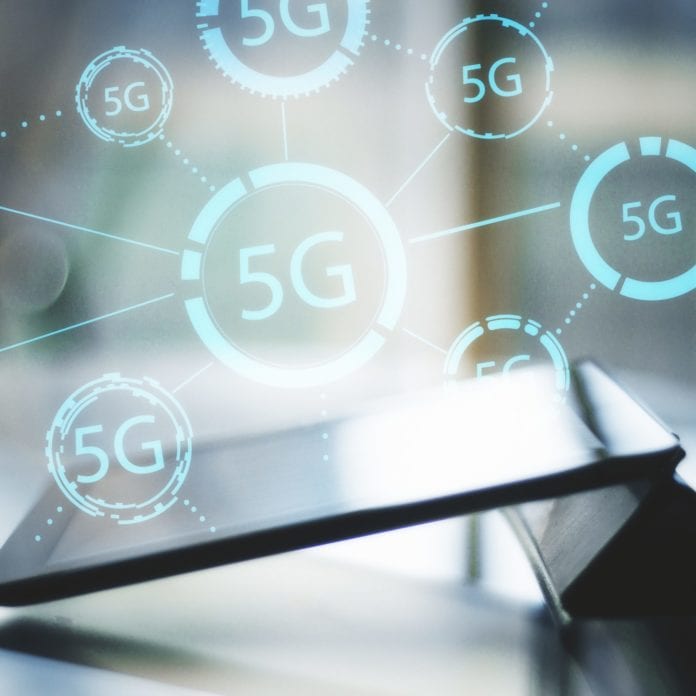The Global Certification Forum serves as an independent device certification body for mobile network operators. Device certification is a major step in bringing a mobile device to market an ensuring that it will operate satisfactorily on a carrier network. Certification testing for devices broadly falls into three categories: conformance to the standard; performance, including antenna performance characteristics; and interoperability, so that a device is tested against its ability to operate on multiple vendors’ networks.
The GCF is one of two primary cellular device certification bodies globally (the other, PTCRB, was originally established to serve North American carriers and its certification program is administered by CTIA, although most of the carrier members are also members of GCF.)
With 5G devices beginning to emerge and more devices expected to arrive as the year goes on, RCR Wireless News spoke with GCF General Manager Lars Nielsen and GCF Program Manager and 5G Lead Chris Hogg about the role of GCF, the complexity of 5G device testing and what work it is currently doing on 5G device certification.
Once test cases are established by the Third Generation Partnership Project, which writes the official technical standards for the cellular industry, GCF’s working groups take them into consideration and select which ones are most relevant for existing (and in-progress) network implementations. Those decisions are made by carriers which are members of GCF and help establish priorities for certification, based on putting together a test regime that covers the technical aspects thoroughly but is still cost-efficient. Then, test equipment companies must have the test cases validated on their platforms: basically, confirming that the test equipment performs the test properly, accurately and repeatably, so that the results can be relied upon as an accurate reflection of the information that the test case is designed to provide.
GCF laid the foundation for its 5G device certification back in early 2018, and work is ongoing. In February, the organization activated its first work item for 5G device certification and said at the time that it expects a full certification test suite by the end of this year. One of the challenges for 5G device testing is the large number of potential test cases. Nielsen said that so far — given the possible 5G configurations and bands, and the complexity involved with the new technology — there are about 6,000 test cases for 5G, compared to a total of around 9,000 test cases that have accumulated for all previous cellular technologies from 2G to 4G (although the latter figure does not take into account test case band combinations). He added that while GCF does have some 5G test cases validated, “it’s still a drop in the ocean. It’s still a very small percentage. And of course, it does take time to implement the tests on test equipment and have them verified — so the development of our certification is dependent on the development of devices, but also test equipment and the test cases from the standards organization.”
Hogg said that most of GCF’s current work on 5G device certification revolves around bringing in newly established test cases from 3GPP for consideration as part of the certification regime, and getting them validated on test equipment.
“There is a lot of work going on in GCF in order to bring the test cases into certification, get them validated and so on,” Hogg said. “The test cases are being brought in almost as fast as 3GPP completes writing them. … We’re seeing a lot of work, but we can only go as fast as 3GPP goes.” He went on to add that most of the activity is on Nonstandalone 5G options, as well as some for bands with Standalone option 2. Hogg also noted that as far as GCF’s certification, it doesn’t just cover conformance and lab testing — it involves live network trials and field trials. GCF, he said, has put much effort into developing its process and enabling networks to declare themselves available for 5G field trials — but there simply aren’t very many of them available for such trials at this point. “All of this is going to change fairly quickly as we get into the second half of the year, and into 2020,” he added.
While the GCF’s 5G device certification program is not yet complete, Nielsen said that in terms of the types of devices that will be certified for 5G, they will most likely vary according to the application that they serve. Fixed wireless access devices, for instance, are not as complex because they are not mobile — so they require less complicated functional testing and are relatively simple to check in networks, Nielsen said, adding that manufacturers of such devices, and the mobile operators which will use them, will be able to conduct testing and have a high degree of confidence in their operation even without formal certification. He noted that when early 4G LTE devices first emerged that were focused on data-only access and had a relatively low number of features, those often were not certified either. Certification became more important for mobile modules, which can turn up in a wide variety of devices, and for smartphones, he added.
“My expectation is, the first devices which will be GCF-certified will be smartphones,” he said. GCF does expect to see some certification occur this year, beginning in the second half.
Looking for more insights on 5G devices? Download the RCR Wireless News special report on Getting 5G Devices to Market and check out the 5G devices webinar.

